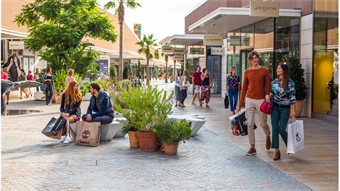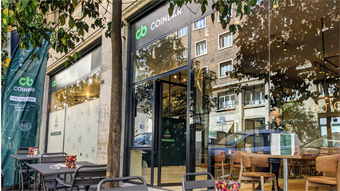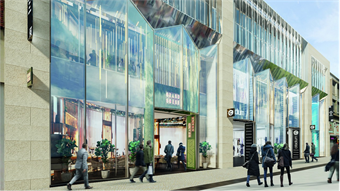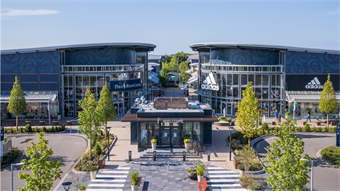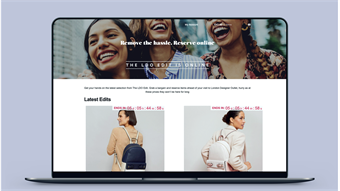INTERVIEW: Taking the lead in food transition
- In Innovation
- 12:57, 19 July 2019
- 2381 Views
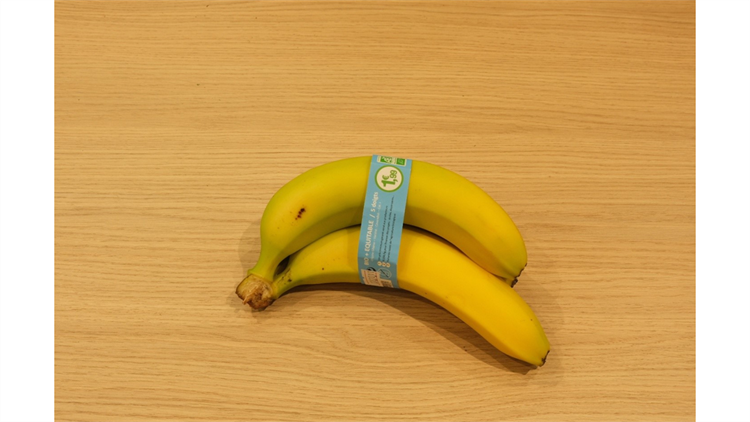
Bertrand Swiderski, Carrefour’s Sustainability Director, talks to Retail Watch about what it will take to achieve the global supermarket group’s goal of being the world leader in food transition.
Operating through diverse retail brands around the world across 11,935 stores in 30 countries – 7,075 are convenience stores – more 384,000 people worldwide are employed by the Carrefour group. The retail giant reported annual sales including VAT in excess of €84.9 bn in the full year 2018.
Like any multi-national retailer of its scale, the Carrefour group has a transformation programme that priorities corporate initiatives, in its case out to 2022. The group is pursuing a fast-paced growth model and is strengthening a culture of operational efficiency and financial discipline. The other notable objective for Carrefour is to become a leader in food transition. Some 80% of the group’s sales are in food.
On the back of its well-received Act for Food campaign, Carrefour established itself in 2018 as the self-proclaimed ‘leader in food transition for all stakeholders’, including customers, suppliers, farmers, associations and public authorities.
According to the company’s full-year 2018 financial results statement, Carrefour will continue to pursue initiatives to offer healthy and environmentally friendly food. Among some the numerous approaches, the supermarket group signed more than 200 contracts to help farmers convert to organic farming in 2018. The Envergure purchasing alliance (Carrefour and Système U) signed four agreements in February to revalue the price of milk paid to producers. Carrefour reported good growth in organic product sales, reached €1.8 bn in 2018. The Group confirms its sales target for organic products of €5bn in 2022.
The following Q&A discusses various highlights of the Carrefour’s multi-faceted global approach to sustainability.
Why is sustainability so important to your business model?
‘We decided last year to launch a transformation programme, which includes four pillars. One of these pillars is food transition. In our long-term view we believe that we have to be the leader of food transition in order to run and operate our business.’
How did your early March launch of customers using their own containers in stores in France, Belgium, Spain and Poland evolve?
‘Our customers can visit our stores with their own food containers to package their meat, fish, cheese and bakery purchases. To launch an initiative like this you need to know that your employees believe it. You also need consumers to be aware of the real benefits of such a project. If you have these two aspects in place for such a change project then it will be a success.’
‘Encouraging consumers to use their own containers when they shop will be a success when it transforms the market. Carrefour in other countries will do it when they can prove that it’s more convenient and cheaper for consumers and there is a business model that makes sense. I would be very happy to share the details of the project with my colleagues at Tesco, for example, and they will be able to follow.’
How are you planning to roll out further waste limitation projects?
‘In May we will launch a new project with Loop to eliminate the idea of disposable to durable consumption. Consumers will be able to buy the product and the container. So, for example, shoppers will be able to buy orange juice and the bottle, which will have a deposit, and can be cleaned and reused. We will roll out this concept across 600 products.’
With reference to the French plastics act, how difficult is it to create change when you need to do this through partnerships and collaboration?
‘It’s always easier when you approach change collectively if in the supply chain each partner takes their own responsibility. When you change something in your own supply chain, it is true, you do not transform the supply chain completely. To transform the market, you need to involve other retailers. Sometimes you have to start with one or two leaders to pave the way for others. It’s what we call positive competition – and it’s very powerful.’
How do you get your employees on board for such largescale sustainability initiatives?
‘We’ve had to create a very big trend inside the company. We’ve communicated to our employees that our strategy is to be a leader in food transition, to improve the quality of food, provide healthy food, provide organic products and remove packaging. We’ve had to create a sense of feeling proud in the strategy and in taking part in it. In a supermarket you should be proud of selling healthy products with sustainable packaging. As an employee you are also a consumer and you may have a family, and you should be thinking about their future. If you are an employee and you’re proud of the project, you can create ambassadors in every store.’
‘We have a programme called Super Heroes of Food Transition that we created last year. When you are involved in a strategy like this one you are super-involved. We organised a super hero challenge this year in every store where we have two or three super heroes in every store. We’ll identify one or two key ambassadors – super heroes – in each country and we’ll celebrate their achievements in a big international event.’
Are there super hero cultural differences in the countries where you operate?
‘The cultural differences vary from country to country. In countries like China, for example, they love the concept of super heroes. In every country there is a very different approach but the engagement works. In Spain, for example, it is important for super heroes to be active on social media as well as in their stores. In France, by comparison, it’s about being proactive within the stores and with their colleagues.’
Why did you decide to take leadership role by selling more organic fair trade bananas, for example?
‘When we launched organic and fair trade organic bananas four years ago we were 100% sure that the world was not producing enough fair trade bananas. It was a risk for us to increase the price by 15%, but then producers created new banana plantations in Africa with improved quality and we improved our sourcing. Today, one-third of the bananas sold in Carrefour are organic and fair trade bananas.’
Reshaping operations with renewable energy
How have you introduced using bio-methane to fuel trucks in the Carrefour logistics fleet?
‘We started to develop a project for our transport using bio-methane. In France, for example, we use 400 trucks that operate using bio-methane that we produce from bio-waste from our stores. Our approach transformed the market in France for all the retailers, and in two or three years we believe that bio-methane fuel will be the standard in the French retail transport market.’
‘When we started four years ago, bio-methane was more expensive for us but today it is a cheaper source of fuel compared with other fuels, for Carrefour.’
How did the Urbasolar partnership and your commitment to renewable energy use come about?
‘During COP21 we made a commitment to reduce our emissions by 40%. To achieve that we decided to reduce our energy consumption to develop natural fluid for our refrigeration and to reduce CO2 emissions for our transport. We reduced our CO2 emissions by 28% and we now have more than 500 installations worldwide where we use only natural fluid for our refrigeration.’
‘A typical Carrefour store was consuming 600 KWh per square metre and now it is consuming a little bit more than 500KWh. We know how to build a store that only consumes 350 KWh per square metre.’
‘One of our main targets is working towards to creating self-autonomous stores. That’s why we are reducing energy consumption at the minimum and are introducing other technologies. The five main technologies that we are introducing are closing the fridge cabinet doors; changing the refrigeration process to natural fluid process; installing only LED lighting; using variation adaptors in every in-store engine; and centralising the consumption mechanism for each store. On the last point this means in Paris, for example, that we can monitor each store in France. Also, all of our stores are !SO 14001-certified in terms of environmental management.’
Retail real estate sustainability credentials
How well is the real estate industry implementing the concept of sustainability in their business model?
“Coming back to the example of bio-methane use, every transport operator buys the concept because there is a business model. It’s the same with the real estate industry – it will buy the concept of sustainability if there is a business model. If there is no business model, it will only be cosmetic.’
‘Real estate does not have such a long track as we do in food retail supermarkets and hypermarkets because they are not so closely linked to consumer sentiment and trends as we are, but they will grow their adoption levels of sustainability fast.’


